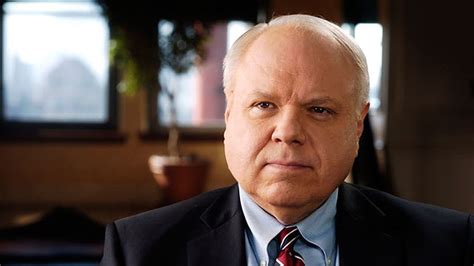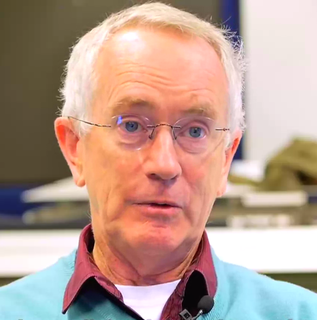A Quote by Fareed Zakaria
In a very weak economy, when you say 'cut government spending,' what you mean is you're laying off school teachers and you're de-funding various programs that put money into the economy. This means you have more unemployed people that then draw unemployment benefits and don't pay taxes.
Related Quotes
Because tax cuts create an incentive to increase output, employment, and production, they also help balance the budget by reducing means-tested government expenditures. A faster-growing economy means lower unemployment and higher incomes, resulting in reduced unemployment benefits and other social welfare programs.
With a congressional mandate to run the deficit up as high as need be, there is no reason to raise taxes now and risk aggravating the depression. Instead, Obama will follow the opposite of the Reagan strategy. Reagan cut taxes and increased the deficit so that liberals could not increase spending. Obama will raise spending and increase the deficit so that conservatives cannot cut taxes. And, when the economy is restored, he will raise taxes with impunity, since the only people who will have to pay them would be rich Republicans.
If I were a candidate for running, I'd say, "Look at what the economy has done." It's strong. We've created a lot of jobs. I'd be telling people that the Democrats will raise your taxes. I'd be reminding people that tax cuts have worked in terms of stimulating the economy. I'd be reminding people there's a philosophical difference between those who want to raise taxes and have the government spend the money, and those of us who say, "You get to spend the money the way you want to see fit. It's your money."
The reality is the most important thing that can be done are these permanent changes like to the tax code, reduction of government spending. These are the things that pop up in economy and move it in the right direction, start to make it an economy that is moving because of the money in the private economy. When you think about it, when the Fed is lowering an interest rate, what it's doing is it's creating more liquidity. It's putting more money into the economy. The same thing happens when you reduce the tax except if happens from physical policy.
The growing inequality of wealth and income distribution is both a moral and economic problem. If the wealthy are unwilling to pay more taxes, then this is going to lead to spending cuts. And if you put off the table things like national defense, then you're going to end up cutting more and more out of programs that aid the poor. So, I think there are consequences to this idea that tolerance for inequality requires us to - to just do nothing to make the wealthy contribute a higher share of resources to fund the government.
If you have a sane economy, and by sane economy I mean one which is not addicted to debt, not a Ponzi economy, then the change in debt each year should contribute a minor amount to demand. Therefore, if you tried to correlate debt to the level of unemployment you would not find much of a correlation. Unfortunately that is not the economy we live in.
When you say the tax system benefits the rich, there are a lot of people who respond, "That can't be true, look at the rate of tax. The people who are rich pay a higher rate than you or I." Well, yeah, but if you don't have to pay taxes on a lot of your income, then your real tax rate is a lot lower. And if you're allowed to pay your taxes thirty years from now instead of today then you're a lot better off. People need to have a sophisticated understanding of how the system works to appreciate that the posted tax rate really has very little to do with the taxes people pay.
The best way to encourage economic vitality and growth is to let people keep their own money.When you spend your own money, somebody's got to manufacture that which you're spending it on. You see, more money in the private sector circulating makes it more likely that our economy will grow. And, incredibly enough, some want to take away part of those tax cuts. They've been reading the wrong textbook. You don't raise somebody's taxes in the middle of a recession. You trust people with their own money. And, by the way, that money isn't the government's money; it's the people's money.
In the name of compassion, Obama advocates seemingly endless extensions of unemployment benefits because his economic theology holds that by paying people not to work, you will create jobs. It not only fails to factor in the obvious deterrent that extended benefits have on their recipients but also falsely assumes that transferring money from one pocket to the next generates more spending - by some mythical multiple factor, no less. Back on planet Earth, studies reveal that extending unemployment benefits results in more unemployment.
































